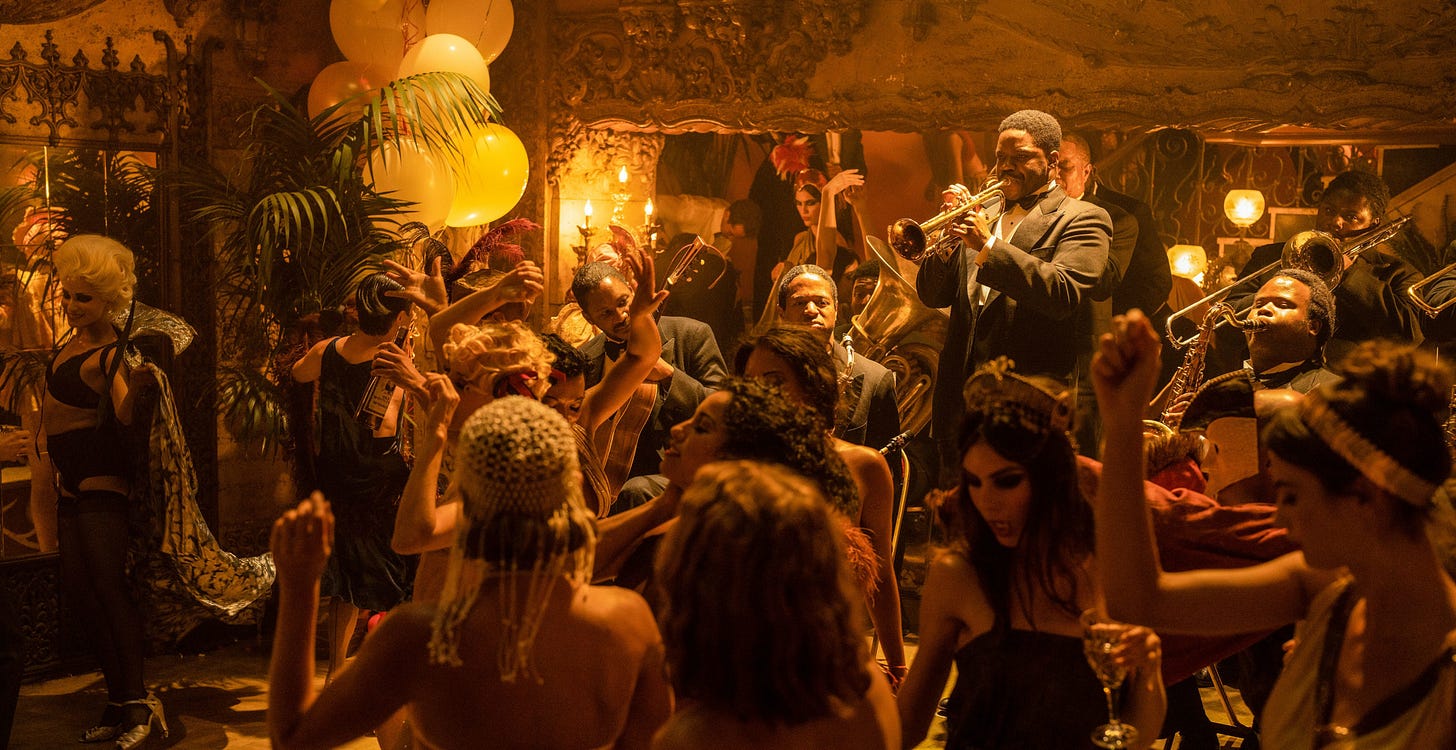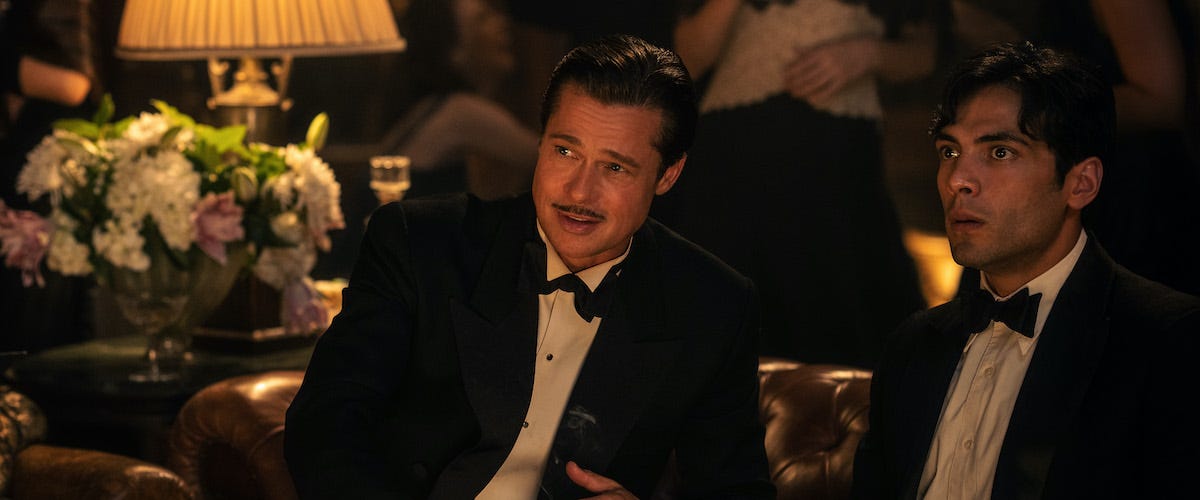Babylon Was Good, Actually
In 2022, the acclaimed writer / director of both La La Land and Whiplash released a hundred-million-dollar movie into the ‘post-pandemic’ world.
And it was met with, uh, mixed reviews.
You’re welcome to form whatever opinion you like, but I happen to love Babylon — Damien Chazelle’s 3-hour free fall into the wretched landscape of 1920’s Hollywood.
I decided to enjoy myself from the sidelines of this whole thing and was keeping out of whatever discourse I could. HOWEVER, I’ve started to notice some less than favorable discussion around a certain montage at the end of the film, even from people who like it overall!
So, I think it’s time I took up my pen, broke my cowardly silence, and finally defended what might just be my favorite part of the whole movie... Avatar-inclusion and all.
Above most things, Babylon is a movie about transition.
Specifically, it’s about transition within the money-making machine that is Hollywood. The movie starts in an era of silent film and tracks the careers of its central characters when the invention of recorded sound shakes the industry.
It’s an innovation that reinvents what success looks like in entertainment, the kind of jobs that need to be done, and what sort of skills a person needs to thrive.
By the end of the story, the ‘talkies’ are there to stay.
No matter the human cost.
Because Hollywood may make people like Nellie LaRoy or Fay Zhu, but it breaks them too. LaRoy gets tossed to the wayside when her voice alienates the audience and a veil of purity culture sets over the silver screen. Zhu heads to Europe after a lifetime of work behind the scenes is no longer necessary to those she made famous.
In the end, it doesn’t matter what these people did or who they are, because the success of Hollywood no longer needs those things.
It moved on and it doesn’t look back.
By the end of Babylon, we (the audience) have watched an entire group of people break apart because of an industry that chewed them up and spit them out in favor of the next big thing.
So has Manny Torres, the emotional center of Chazelle’s epic tale.
Manny is an immigrant who followed his dreams to Hollywood, made movies with the stars, and slowly watched the people he loved be ripped apart by an industry that told them it cared. And, in the film’s final sequence, we feel that pain with him. We sit beside him in a crowded theater as Singin’ in the Rain paints that horrific chapter of his life in a musical, comedic light. But we also recognize a bit of joy in his expression.
Because Manny Torres is watching Singin’ In the Rain, and Singin’ In the Rain is a beautiful movie. The colors, the songs, the dances, the performances — they’re all glamorous and big and bright. At the time, and even now, it’s magic.
We see the effect of that magic on Torres, then feel it reflected in ourselves.
So then, why do we transition from that into a montage of cinema’s greatest hits?
The short answer is that we don’t.
These aren’t cinema’s greatest hits, though you’re welcome to disagree, they’re actually cinema’s biggest transitions. They’re films that changed the game when it came to technological advancement in storytelling, from George Mellies to Space Odyssey to Avatar. Each of these movies revolutionized the way films could be made - often at the expense of the people who made them.
Animators now work unreasonable hours to produce movies made entirely of CGI. Full seasons of television are filmed before they get canceled with no warning on Tuesday afternoon. And, women can’t call out abusive practices in public or they won’t see work for twenty years.
Hollywood evolves, but it doesn’t really change. That’s the montage.
After which, we watch the process of technicolor, which is one step further than silence to sound. We see rolls of film, shot throughout the movie, given a new, colorized life. It’s gorgeous to look at and elevates what came before.
It finds another spark in each performance that only time can bring, despite all the pain we know it took to get that ‘perfect shot’. Whether that was the murder of nameless extras on an Arthurian battle field or a face-full of elephant scat.
To me, Babylon is not a celebration of cinema; It’s a tragedy.
As we sit in the theater and realize that, despite having been shown exactly what it took to get that movie on screen and exactly who was broken in the process, Singin’ in the Rain will always be magic. Movies will always be beautiful, and we will always be in that audience with Manny Torres, tears in our eyes.
It is painful and tragic to know that, by loving movies, we are culpable in the horrors of Hollywood’s creation. That cannot be changed.
But luckily, LA is a union town.
And there are currently hundreds, if not thousands of people, fighting for their right to create safely and with fair pay. The Hollywood strike of 2023 is a movement, based on collective action, that is pushing back against corporate greed and building a fairer infrastructure inside the industry machine. Started by the WGA and backed by their fellow unions, they are attempting to put personal needs aside and chart a better future for people like Nellie or Fay or Manny. They are physically making sure that being an artist remains a sustainable career.
You can find more information on accounts like twitter.com/WGAWest and twitter.com/WGAEast.
In fiction, even when it’s historical, tragedy is unavoidable.
It is a pre-written story. That’s how it was always going to end.
But in reality, cycles can be broken.
We can be the one’s to change how we’re treated, but only if we do it together.
… and can you believe I learned all that from the last five minutes of Babylon?






Superb analysis!’